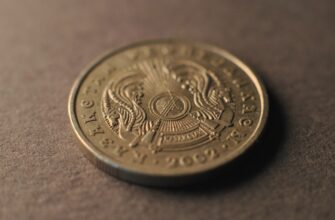- Is Crypto Investing Halal? Navigating Islamic Finance in the Digital Age
- Understanding Halal in Financial Context
- Core Principles of Islamic Finance
- The Crypto Halal Debate: Divergent Scholarly Views
- Arguments Supporting Halal Status
- Arguments Against Halal Status
- Halal Crypto Investment Strategies
- Shariah-Compliant Alternatives to Crypto
- Frequently Asked Questions
- 1. Is Bitcoin halal according to Islamic law?
- 2. Can I earn crypto staking rewards Islamically?
- 3. Are NFTs halal?
- 4. How do I verify a crypto project’s halal status?
Is Crypto Investing Halal? Navigating Islamic Finance in the Digital Age
The rise of cryptocurrency has sparked intense debate among Muslim investors worldwide. With global crypto adoption growing at 880% in 2021 alone (Chainalysis), the question “Is crypto investing halal?” demands careful examination through the lens of Shariah law. This 900-word guide explores key Islamic finance principles, scholarly opinions, and practical strategies for ethically conscious investors.
Understanding Halal in Financial Context
Halal (permissible) finance operates under strict Islamic principles prohibiting:
- Riba (Interest): Earning or paying fixed interest
- Gharar (Excessive Uncertainty): Speculative transactions with ambiguous terms
- Haram Activities: Investments supporting alcohol, gambling, or adult industries
Unlike conventional finance, Islamic investing requires asset-backing and shared risk between parties. The global Islamic finance market is projected to reach $3.69 trillion by 2024 (Reuters), reflecting growing demand for Shariah-compliant options.
Core Principles of Islamic Finance
Shariah-compliant investing rests on three pillars:
- Asset-Backed Transactions: Investments must represent tangible assets or services
- Risk-Sharing: Profits and losses distributed fairly among participants
- Social Responsibility: Wealth generation must benefit society ethically
The Crypto Halal Debate: Divergent Scholarly Views
Islamic scholars remain divided on cryptocurrency’s permissibility:
Arguments Supporting Halal Status
- Decentralization: Avoids traditional banking systems based on riba
- Utility Tokens: Coins enabling access to blockchain services may qualify as “digital assets”
- Transparency: Public ledgers reduce gharar through transaction visibility
Notable supporters include Indonesia’s Nahdlatul Ulama (world’s largest Muslim organization) and Dubai’s Shariah Review Bureau, which approved certain tokens.
Arguments Against Halal Status
- Speculation Dominance: 75% of crypto trading is speculative (IMF), violating gharar principles
- Lack of Intrinsic Value: Critics argue cryptocurrencies aren’t asset-backed
- Anonymity Risks: Potential for illicit activities violating social responsibility
Turkey’s Religious Affairs Directorate and Egypt’s Grand Mufti have issued fatwas against Bitcoin specifically.
Halal Crypto Investment Strategies
For investors seeking Shariah-compliant approaches:
- Prioritize Utility Tokens: Choose coins with real-world applications (e.g., Ethereum for smart contracts)
- Avoid Interest-Bearing Products: Steer clear of crypto lending/staking with fixed returns
- Conduct Due Diligence: Verify projects don’t support haram industries
- Use Certified Platforms: Seek exchanges vetted by Shariah boards like Islamic Finance Guru
Shariah-Compliant Alternatives to Crypto
Consider these established halal investments:
- Sukuk: Islamic bonds financing tangible assets
- Halal Stocks: Sharia-screened equities (e.g., S&P 500 Shariah Index)
- Real Estate: Property investments via musharakah partnerships
- Gold: Physical bullion or Shariah-compliant digital gold
Frequently Asked Questions
1. Is Bitcoin halal according to Islamic law?
Scholars disagree. While some consider it permissible as “digital gold,” others prohibit it due to volatility and speculative use. Always consult your local Shariah board.
2. Can I earn crypto staking rewards Islamically?
Fixed percentage staking rewards resemble riba and are generally prohibited. Profit-sharing models where returns fluctuate based on network performance may be acceptable.
3. Are NFTs halal?
NFTs representing halal digital art or real-world assets could be permissible. Avoid NFTs linked to gambling, pornography, or interest-bearing mechanisms.
4. How do I verify a crypto project’s halal status?
Look for certifications from recognized bodies like Bahrain’s Shariyah Review Bureau or consult platforms like IslamicCoin that undergo quarterly Shariah audits.
Final Guidance: The evolving nature of cryptocurrency requires ongoing scholarly evaluation. Muslim investors should prioritize transparency, avoid excessive speculation, and seek fatwas from qualified jurists familiar with blockchain technology. As Sheikh Haitham al-Haddad notes: “The means must be halal, not just the end.”








